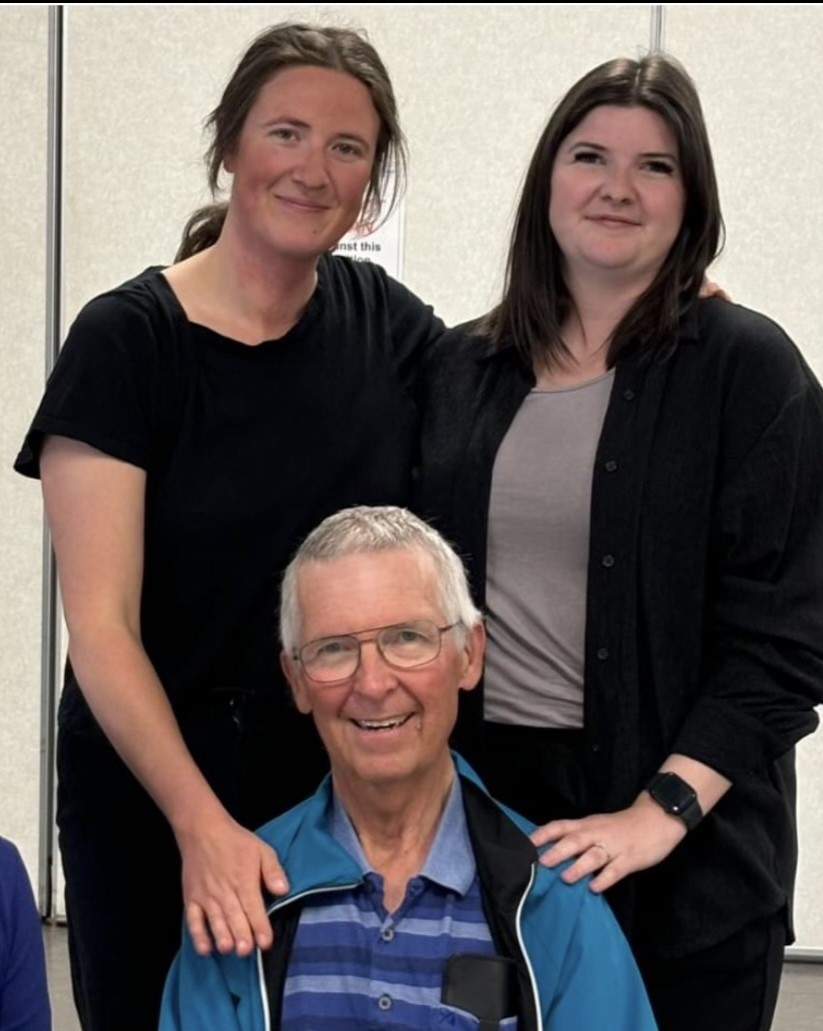

What We Achieved Together in British Columbia
In 2024, Deafblind Community Services (DBCS) faced an uncertain future in British Columbia when provincial funding for vital intervenor services was unexpectedly put at risk. These services are not just supports — they are a lifeline that ensures people who are Deafblind can communicate, access information, and navigate the world around them safely and independently.
In response, we launched a province-wide advocacy campaign to raise awareness and urge the B.C. government to take action. Through powerful stories, letters to government officials, and support from allies across the country, we made it clear: access to intervenor services is a human right.
The outcome?
The B.C. government committed to renewing and increasing funding for Deafblind intervenor services, ensuring continued access for those who need it most. This success would not have been possible without the voices of our community — your advocacy made this happen.
Read the full funding announcement.
Archived Campaign
CNIB Deafblind Community Services (DBCS) is at a critical juncture in British Columbia. Without sustainable funding, the life-saving services we provide to people who are Deafblind may cease. The time to act is now. We are continuing to urge the Government of British Columbia to continue funding essential Deafblind services, ensuring that individuals who are Deafblind have access to the support they need to live safe, independent, and fulfilling lives.
What's at Risk?
CNIB Deafblind Community Services (DBCS) has been providing intervenor services in British Columbia since 2022. We’re advocating for sustainable funding to ensure all British Columbians who are Deafblind have access to the life-changing services they need to thrive.
We need your support to ensure that the Government of British Columbia commits to sustainable funding and expands access to these essential services.
![An intervenor and client sit beside each other on a bench, using two-hand manual communication to have a conversation.]](/sites/default/files/2023-04/_M0A5618-min.jpg)
What is Deafblindness?
Deafblindness is a distinct disability, combining a loss of hearing and vision to such an extent that communication, mobility, and access to information become extremely challenging. The support of a trained intervenor is often the difference between safety and isolation for individuals who are Deafblind.
What are Intervenors?
Intervenors are trained professionals who act as the eyes and ears for people who are Deafblind, providing communication, navigation, and access to information. These services are life-saving and life-changing, allowing clients to live independently, communicate with loved ones, and stay engaged with their communities.

What You Can Do
There are many ways you can support the Deafblind community and make a difference. Here are some opportunities for you to get involved:
-
Advocate for Awareness: Continue to raise awareness about the importance of Intervenor services. Share information on social media, discuss the impact of Deafblind services with friends and family, or engage with local community groups to spread the word
-
Stay Informed: Sign up for CNIB's Advocacy e-newsletter to receive updates on advocacy efforts, upcoming events, and opportunities for involvement. Knowledge is a powerful tool in advocating for change!
-
Engage with Local Leaders: Connect with your local government representatives to discuss the importance of funding for Deafblind services. Share your experiences and insights to advocate for sustainable support.
Every action counts, and your involvement can help us continue to provide vital services and support to the Deafblind community. Thank you for your ongoing commitment and support!

DBCS has had such a positive impact on my life. My communication, mobility, and learning have increased immensely. The biggest benefit is the increase in my self-esteem and knowing that I can still do things with help from an intervenor.
Media at a Glance: Dive Deeper

The Lifeline We Can’t Afford to Lose
During the pandemic, many of us got a small taste of what it feels like to be cut off from the world around us. We experienced the loneliness, anxiety, and fear that comes from being unable to see friends, hear the chatter of a busy street, or feel the presence of community. It was a time of deep uncertainty, and it took a toll on our mental health.

DBCS Urges BC Government Action on Life-Saving Support
Victoria, BC – November 5, 2024 – CNIB Deafblind Community Services (DBCS) would like to congratulate the newly elected government of British Columbia. Today, DBCS is calling on the province to take immediate action to ensure critical services for British Columbians who are Deafblind continue without interruption.

Letters to Party Leaders
Currently, DBCS is at a critical juncture in British Columbia. DBCS received a two-year grant from the Department of Social Development and Poverty Reduction to establish a core service offering in the province. We have not received a commitment to renewed funding, meaning we face the serious and heartbreaking reality of informing our clients that our life-saving interventions will cease in the immediate future.